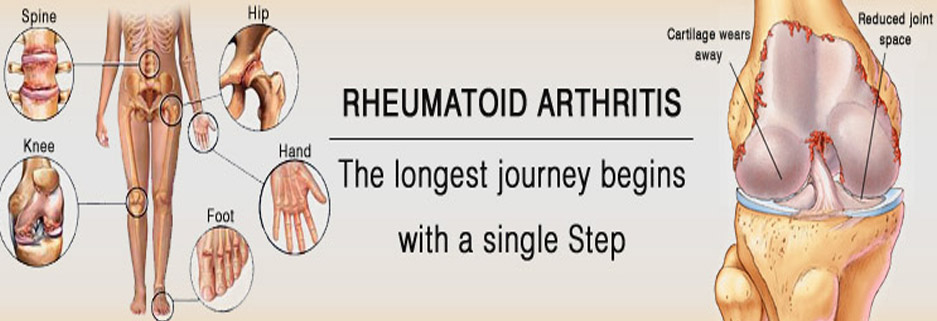|
Rheumatology is the branch/specialty of Medicine that deals with the diagnosis and treatment of patients with Rheumatic or musculo-skeletal diseases- in simple terms, "Arthritis". Rheumatic Diseases comprise a heterogeneous group of disorders of the connective tissue, joints and bones in which musculo-skeletal pain and stiffness are the prominent symptoms. Rheumatic diseases affect people of all ages and ethnic groups and are the commonest cause of physical impairment in the community. The most common symptom of rheumatic disease, is joint pain; and if it is due to an inflammatory cause,then the pain may be associated with joint swelling and stiffness and perhaps other systemic complaints. However, joint pain need not necessarily imply a rheumatic disease; therefore any patient with joint symptoms, would need proper evaluation to determine the cause.The full range of rheumatological disorders is seen in India, with the commonest condition being Osteoarthritis; however, the most common inflammatory condition is Rheumatoid Arthritis, which very much mirrors the worldwide incidence of these conditions.
The conditions/disorders that comprise rheumatic diseases include:
-
All Inflammatory joint diseases
- All Connective tissue disorders including myositis and vasculitis
- Crystal induced arthritis (gout)
- Osteoarthritis
- Low Back Pain
- 'Soft Tissue' rheumatism
- Osteoporosis
- Juvenile (Paediatric) arthritis
Treatment
Most rheumatic diseases are treated with analgesics, NSAIDs (Non-Steroid Anti-Inflammatory Drugs), steroids (in serious cases), DMARDs (Disease-Modifying Anti-Rheumatic Drugs), monoclonal antibodies, such as infliximab and adalimumab, and the soluble TNF receptor etanercept and Methotrexate for moderate to severe Rheumatoid arthritis.[3] Biologic agent Rituximab (Anti-B-Cell Therapy) is now licensed for use in refractory Rheumatoid Arthritis.[4] Physiotherapy is vital in the treatment of many rheumatological disorders. Occupational therapy can help patients finding alternative ways for common movements which would otherwise be restricted by their disease. Patients with rheumatoid arthritis often need a long term, coordinated and a multidisciplinary team approach towards management of individual patients. Treatment is often tailored according to the individual needs of each patient which is also dependent on the response and the tolerability of medications. Rheumasurgery has also played an integral part in the treatment of rheumatic disorders.
In rheumatoid arthritis, the body's immune system attacks its own tissue, including joints. In severe cases, it attacks internal organs.
Rheumatoid arthritis affects joint linings, causing painful swelling. Over long periods of time, the inflammation associated with rheumatoid arthritis can cause bone erosion and joint deformity.
While there's no cure for rheumatoid arthritis, physiotherapy and medication can help slow the disease's progression. Most cases can be managed with a class of medications called anti-rheumatic drugs (DMARDS)
|




